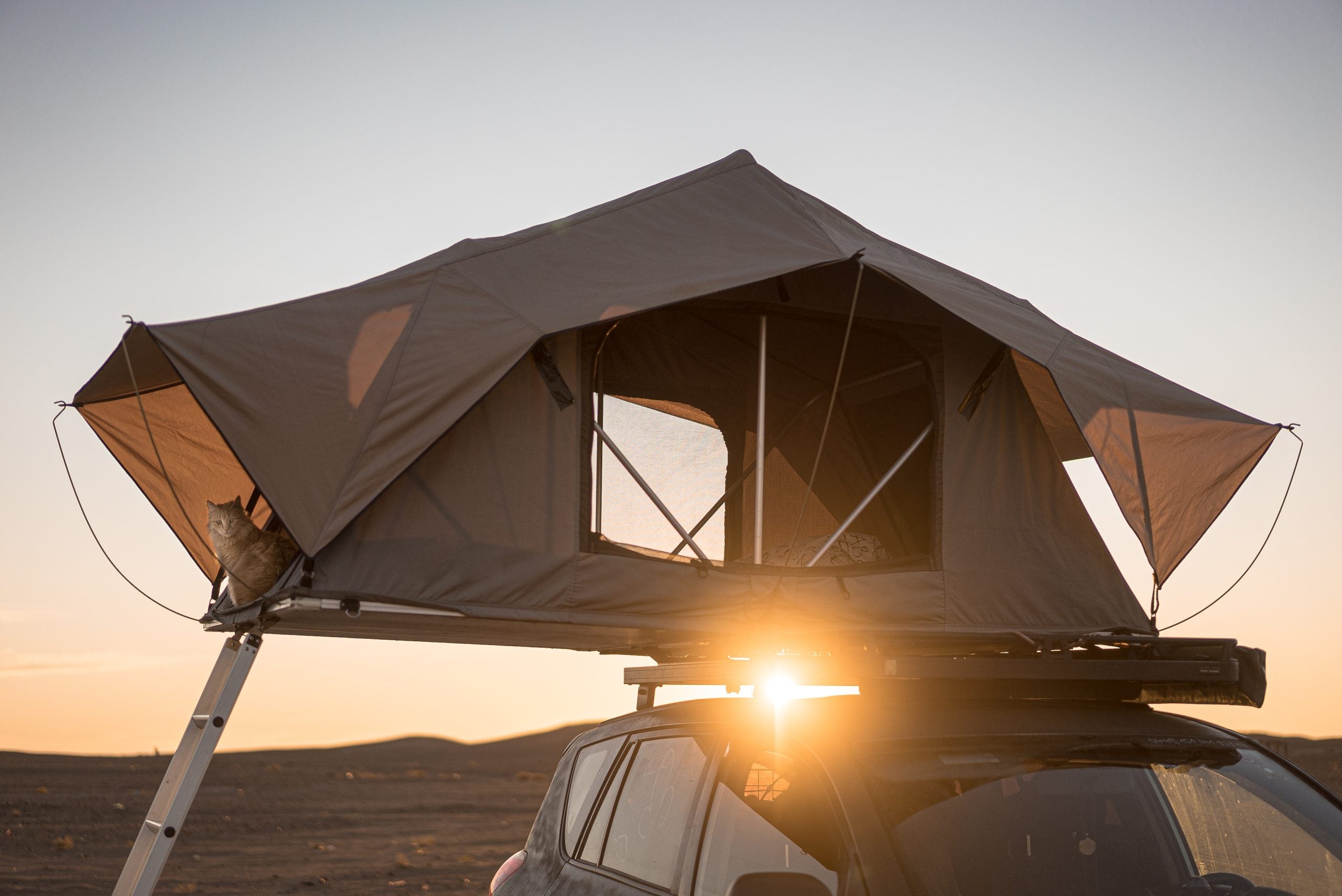
Our Editors independently research, test, and rate what we feel are the best products. We use affiliate links and may receive a small commission on purchases.
Rooftop tents have become increasingly popular among outdoor enthusiasts, offering a unique and convenient way to experience the great outdoors. Mounted on the roof of a vehicle, these tents provide a comfortable and elevated camping experience. However, like any outdoor gear, rooftop tents come with their own benefits and drawbacks. Let’s delve into the rooftop tent pros and cons as well as the key aspects you should consider when deciding whether a rooftop tent is the right choice for your next adventure.
Rooftop Tent Benefits

1. Quick Setup and Takedown:
One of the most significant advantages of rooftop tents is their quick and easy setup. Most models can be ready for use in a matter of minutes, allowing you to spend more time enjoying your surroundings and less time wrestling with tent poles and stakes.
2. Elevated Camping Experience:
Sleeping on top of your vehicle provides a unique and elevated perspective of your surroundings. This not only enhances your overall camping experience but also provides added safety by keeping you off the ground, away from potential critters or uneven terrain.
3. Versatility and Mobility:
Rooftop tents are ideal for those who love to explore multiple locations on a single trip. The ability to set up camp almost anywhere your vehicle can go adds a level of flexibility that traditional ground tents may not offer.
4. Comfortable Mattresses:
Many rooftop tents come with built-in mattresses that offer superior comfort compared to sleeping on the ground. This can be a game-changer for those who value a good night’s sleep while camping.
5. Space Efficiency:
With a rooftop tent, you free up valuable space inside your vehicle, allowing for more storage or additional passengers. This is particularly beneficial for smaller vehicles or those on extended road trips.
Rooftop Tent Drawbacks

1. Initial Cost:
Rooftop tents can be a significant investment. The initial cost, including the tent itself and any necessary roof rack modifications, is much higher than traditional ground tents. Expect to pay at least $1,500 for soft-topped tents from companies such as Yakima and Thule, and upwards of $2,500 for hardtopped models from Roofnest and iKamper. However, for frequent campers, the long-term benefits may outweigh this initial expense.
2. Vehicle Height and Handling:
The added height of a rooftop tent can affect your vehicle’s aerodynamics and handling. Be mindful of clearance issues, especially when entering low-clearance spaces such as parking garages or underpasses.
3. Setup Challenges in Windy Conditions:
Setting up a rooftop tent in windy conditions can be challenging. The tent’s elevated position makes it more susceptible to wind, and users may find it more difficult to secure the tent properly in adverse weather.
4. Limited Sleeping Space:
While rooftop tents are comfortable, they generally provide sleeping space for two to three people, limiting their suitability for larger groups or families. This can be a drawback for those who frequently camp with a larger crew.
5. Weight Considerations:
The additional weight on your vehicle’s roof may impact fuel efficiency, especially in smaller or less powerful vehicles. It’s crucial to consider your vehicle’s load capacity and make necessary adjustments to accommodate the extra weight.
Is a rooftop tent right for you?

Choosing a rooftop tent for your outdoor adventures involves weighing the pros and cons against your specific needs and preferences. For those seeking a hassle-free, elevated camping experience with quick setup and mobility, a rooftop tent might be the perfect solution. However, potential drawbacks such as initial cost, vehicle handling considerations, and limited sleeping space should be carefully considered before making the investment. Ultimately, the decision comes down to personal priorities and the type of camping experience you desire.
